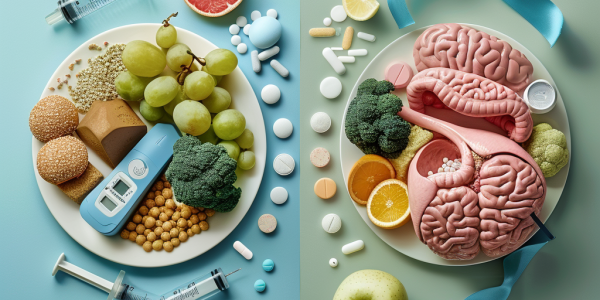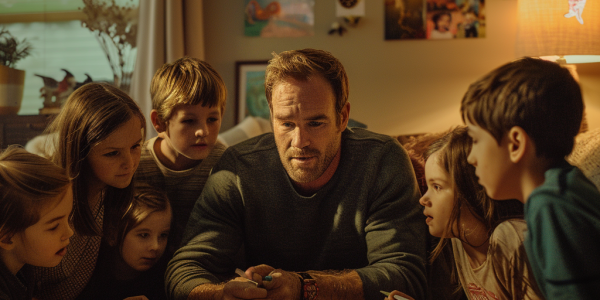Rising Bowel Cancer Cases Among Young Adults Prompt Urgent Health Concerns
Bowel cancer is increasingly affecting younger individuals under 50, with alarming trends reported in countries like the UK, New Zealand, and Chile. Recent studies reveal a rise in early-onset cases, driven by lifestyle changes and dietary habits. Experts emphasize the need for increased awareness, early screening, and preventive measures to address this growing public health concern.
Study Links Seed Oils to Rising Colon Cancer Rates in Young Adults
A recent study reveals potential health risks linked to seed oils in the American diet, particularly concerning rising colon cancer rates among young adults. Researchers found high levels of bioactive lipids in tumor samples, suggesting these oils may promote inflammation and cancer risk. Experts advocate for healthier alternatives like olive and avocado oil, while the debate continues within the medical community about the safety of seed oils. Stay informed about your cooking oil choices to better understand their health impacts.
Targeted Intervention Triples Colorectal Cancer Screening Rates in Underserved Populations
A recent study from UNC Lineberger reveals a targeted intervention that triples colorectal cancer screening rates among underserved populations at federally qualified health centers (FQHCs). By mailing at-home screening kits and providing follow-up support, this initiative addresses critical barriers to screening, aiming to reduce colorectal cancer incidence and mortality. The findings highlight the importance of innovative public health strategies to enhance screening access and improve health equity.
Colorectal Cancer Rising Among Younger Adults: A Call for Awareness and Early Detection
Colorectal cancer rates are surging among younger adults, with 13% of cases expected in those under 50. A personal story from Bri Mahon highlights the critical need for awareness and early detection. Symptoms like digestive issues and fatigue should not be ignored. The CDC recommends screenings starting at age 45, emphasizing the importance of proactive health measures. Educating oneself about colorectal cancer warning signs is essential for timely intervention.
Recognizing Bowel Cancer Symptoms for Early Detection
Understanding the signs and symptoms of bowel cancer is vital for early detection and treatment. Persistent stomach aches or lumps in the abdomen can indicate serious health issues like bowel cancer. Key symptoms include changes in bowel habits, blood in stool, and unexplained weight loss. Seek medical advice if you experience severe or prolonged discomfort. Raising awareness about these symptoms can save lives.
Study Highlights Effectiveness of Colorectal Cancer Screening in Adults Aged 45 to 49
Recent research underscores the effectiveness of fecal immunochemical testing (FIT) for colorectal cancer screening in younger adults aged 45 to 49. The study reveals higher completion rates and comparable cancer detection outcomes between younger and older individuals, highlighting the need for updated screening guidelines due to rising CRC incidence in younger populations.
Rising Colon Cancer Rates Among Younger Americans: The Urgent Need for Awareness and Screening
Recent research reveals a concerning rise in colon cancer rates among younger Americans aged 20 to 54, with deaths increasing nearly 1% since 2005. This highlights the urgent need for healthcare professionals to be vigilant in diagnosing colorectal cancer, particularly as symptoms like iron deficiency may indicate higher risks. Early detection and proactive health measures are essential to combat this alarming trend.
Study Links Type 2 Diabetes Treatment to Increased Colorectal Cancer Risk
A recent study published in BMC Gastroenterology reveals a significant link between Type 2 diabetes (T2D) and colorectal cancer (CRC), particularly concerning the use of sulfonylureas. The research indicates that while T2D may initially seem to increase CRC risk, sulfonylurea usage shows a consistent association with higher CRC likelihood. These findings underscore the need for healthcare providers to reassess diabetes treatment plans and emphasize regular CRC screenings for patients with T2D.
James Van Der Beek Reveals Colorectal Cancer Diagnosis
James Van Der Beek, the beloved actor known for his iconic roles, has revealed his diagnosis of colorectal cancer at 47. Despite facing this challenge, he remains optimistic, focusing on family and continuing his work in television and film. Van Der Beek’s involvement in awareness initiatives like ‘The Real Full Monty’ highlights the importance of early detection and cancer research. His journey serves as an inspiration, reminding us of the resilience needed in the fight against cancer.
UTEP Researchers Develop Low-Cost Device for Rapid Cancer Detection
Researchers at The University of Texas at El Paso have developed a low-cost portable device that can detect colorectal and prostate cancer in just one hour. This groundbreaking technology aims to enhance cancer diagnosis accessibility, especially in developing countries, by providing rapid and accurate results without the need for expensive equipment. The innovative biochip device captures cancer biomarkers using a unique microfluidic design, making early detection more feasible and potentially saving lives.










